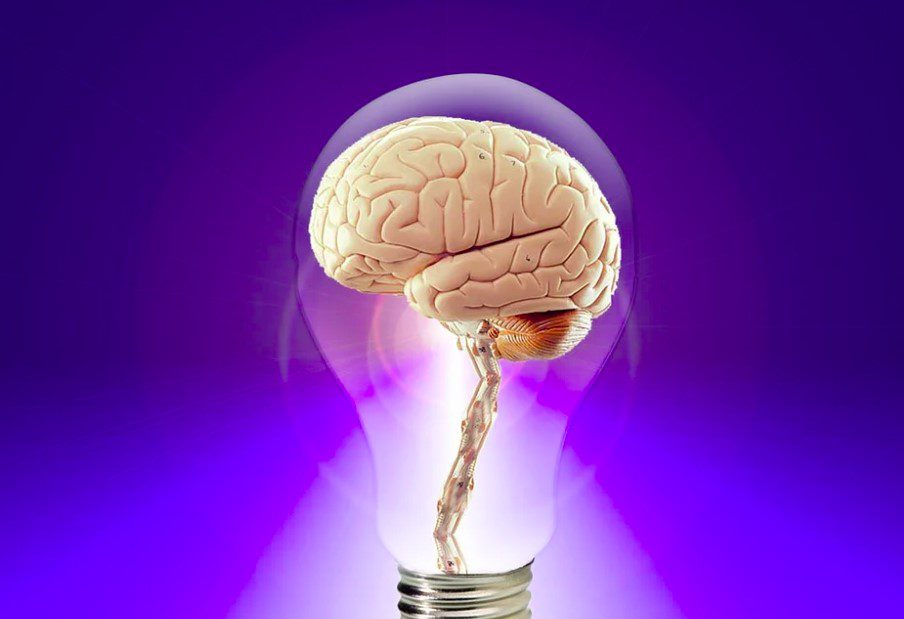Brain development in children describes how they develop intellect. This basically means they get to do stuff like thinking, reasoning, understanding, and learning.
Efficient optimization of the brain allows them to solve mental challenges and productivity tasks with ease. Even better, they get to maximize their executive functioning skills.
The reverse is true when the brain is not fully optimized. They will have challenges thinking clearly and optimizing their executive functions.
Many factors are needed to optimize the functions of the brain, such as a healthy diet, but two are critical in optimizing brain development: genetics and life experiences.
The genes children inherit from their parents, together with the experiences they acquire in life, all shape how their brains perform.
According to emerging science known as epigenetics, or loosely – the science of change, external factors like the environment, creative experiences, and nutrition, are intrinsically crucial in shaping brain development as much as genetics.
The studies show how some of the modern-day diseases, behavior, and health conditions can be traced to epigenetics.
For example,
A pregnant woman’s environment and behavior during pregnancy, such as whether she eats healthy food, can change the baby’s epigenetics.
CDC
The same can be said of identical twins who exhibit deferring skills, behavior, and purposes in life following exposure to different experiences.
Best ways to speed up brain development in children

For children to achieve the ultimate development of the brain, the experiences they go through early in life must be optimized. It all starts with a healthy pregnancy, supportive relationships, healthy formative years, and creative learning experiences.
Simply put, all experiences in early childhood matter.
Below are important experiences you can do right to make sure children achieve this goal.
1. Optimize pregnancy and the first 2 years of life
The truth is, brain development in children will always evolve every passing year, but is critical during pregnancy (especially mid-pregnancy) through to the 2nd birthday.
During this time,
Nerves grow and connect and get covered with myelin, creating the systems that decide how a child — and the adult she becomes — thinks and feels. Those connections and changes affect sensory systems, learning, memory, attention, processing speed, the ability to control impulses and mood, and even the ability to multitask or plan.
Harvard Health Publishing
The brain changes in quantity and size from childhood through to adulthood.
The human brain at 5 months post-conception is a smooth, bi-lobed structure that looks somewhat like a coffee bean. By 9 months, i.e. term birth, it has gyri and sulci indicative of significant complexity, looking far more like the walnut-like adult brain. At birth, rapidly developing brain areas include the hippocampus and the visual and auditory cortices.
For example, following childbirth, the brain of the newborn contains up to 100 billion neurons, which are twice as many in the adult brain and yet, the brain of a child is only half the size of that of an adult.
The neurons only decrease in number after the second year, as inactive ones are pruned to create room for active ones.
During these two years, the brain in children is enlarging and absorbing many things. They are acclimatizing to a new life, a new environment, and health factors such as nutrition and toxins.
These influences/experiences usually determine how their brains will continue to function as they age. As such, the following must be availed during this period:
- parental protection, care, and love
- responsive and clean environment
- healthy nutrition both for the mother and child
2. Provide quality sleep at NIGHT
Adequate and quality sleep directly affects how the brain functions and grows. It is crucial in child development just like parental affection, protection, and nutrition.
Adequate sleep basically means longer hours of uninterrupted sleep, while quality sleep refers to a sleeping environment devoid of noise, light, and other disruptions.
Also true, children’s heads should not be covered at night to allow a sufficient flow of oxygen.
Adequate and quality sleep will do the following to children:
- allow the brain to recharge and detoxify
- allow the brain to internalize and store the information it acquired when the baby was awake
- permit physical growth of the brain through the formation of brain synapses and connections
The following should suffice as adequate sleeping hours for children. Of course, more is fine for the very young ones even during the day.
| Years | Hours |
| 0 – 1 | 14 -17 |
| 1 – 3 | 12 – 15 |
| 3 – 6 | 10 – 13 |
| 6 – 12 | 9 – 11 |
| 12 – 18 | 8 – 10 |
Lack of quality sleep can interfere with cognitive development in many ways:
In a community sample of 8-year-old children, those who slept less or had poorer sleep quality had lower test scores in cognitive tasks
National Library of Medicine
Children who lack quality sleep have problems paying attention and regulate their emotions. They will also experience delays in achieving developmental milestones.
3. Emphasize healthy nutrition
Just like the pregnant mother should eat healthy food, so should the newborn during the early years of life. Like mentioned ealier, brain development is most sensitive to nutrition starting in mid-pregnancy and infancy.
Besides boosting brain development, good nutrition at this time will facilitate motor and socio-emotional development.
Poor nutrition will affect their physical and mental growth in many ways, in addition to lifelong brain function, general cognition, productivity, and behavior.
In addition,
Certain types of nutritional deficiency clearly impair brain development, including severe acute malnutrition, chronic undernutrition, iron deficiency, and iodine deficiency.
Nutrition and brain development in early life
Basic food types that are beneficial for brain development and overall health for children include:
- Breast milk provides the best mix of nutrients and fats necessary for brain growth
- Milk, yogurt, and cheese for proteins, fats, Vitamin D, and a mix of nutrients
- Eggs for proteins and other nutrients
- Oily fish such as Salmon for Vitamin D, iron and Omega-3s
- Whole grains for Vitamin B and glucose
- Nut and seed varieties for protein, minerals, vitamins, and essential fatty acids
- Beans and other legumes for proteins, fiber, and complex carbs
- Leafy greens and colored veggies for vitamins, iron, folate, antioxidants, etc. They also reduce the chance of children developing dementia later in life
- Chickpeas, livers, roasted chicken, and bananas for Vitamin B6
- Iron-fortified cereals, bread, and pasta
Other servings with quality nutrients include oatmeal, berries, and lean beef.
Last but not least, remember to serve children with drinking water as per the recommended guidelines. This is especially true because children generally dislike water, and must therefore be made to understand the importance of water to the brain.
4. Bond and communicate
The early experiences children have with parents, caregivers, and the community contribute a lot in shaping their cognitive development.
Be it at home or school, the responses they receive shape the way the brain perceives relationships and the big picture of social-emotional wellbeing.
The brain development of infants (as well as their social, emotional, and cognitive development) depends on a loving bond or attachment relationship with a primary caregiver, usually a parent.
NCBI
Through relationships with people around them, the brain learns to appreciate and interpret relationships positively or negatively.
In the event that a baby cries and seeks attention, parental responses that provide comfort will help the brain construct a positive social-emotional perception of life and the people around them.
Those perceptions influence how babies understand their environment, relate to others and engage in learning.
naeyc
While laying down the foundation of social-emotional wellbeing, parents are challenged to communicate effectively by listening, talking, and reading with children.
By
- listening to them, children learn that what they say is important and this is important for boosting confidence and self-belief.
- talking to them and answering their questions, children open up, learn and develop self-esteem
- reading with them, children learn new things, they become curious, imaginative, and creative, thereby tasking their brains to learn and create new things
Overall, communication with children optimizes brain activity as they listen, talk, and read. Communication also helps their brains master better relationship skills and boosts self-esteem.
When bonding with children is lacking, the little ones are likely to become less happy, confident, and independent. They will have trouble learning and will fail to use their brains optimally.
5. Promote creative experiences and exploration
A range of creative experiences and playtime are integral to child development and essential for physical, social, health, and cognitive development.
In a clinical report by the American Academy of Pediatrics,
Play is not frivolous: it enhances brain structure and function and promotes executive function (ie, the process of learning, rather than the content), which allow us to pursue goals and ignore distractions.
Unstructured play with children can help improve memory and stimulate the growth of the cerebral cortex in the brain. Among others, the cerebral cortex facilitates the following:
- motor skills
- planning and organization
- language processing
- determining intelligence and personality
- processing sensory data
When children participate in physical activity they explore and develop life skills such as executive functioning skills (EFS) which are important for self-awareness, emotional regulation, planning, motivation, working memory, etc.
The executive functions are associated with the frontal lobes of the brain located just behind the forehead. Then there are the cortical lobes and subcortical frameworks which connect to the frontal lobes.
As children grow, they should spend most of the day running and playing games such as hide-and-seek, peek-a-boo, Lego, tag, freeze-tag, pat-a-cake, soccer, netball, rope-jumping, etc.
A reminder though, that games should be age-relevant and appropriate.
Besides playtime, children are also encouraged to play computer games, musical instruments, dance, learn a new language, and read wide. They should also be allowed to learn arts and crafts. These stimulate the brain in so many different ways.
- Select computer games can help them learn new concepts and generate creativity. Games will also help steer them away from addictive movies and social media apps.
- Musical instruments can stimulate the brain in powerful ways than many other creative experiences.
- Cognitive demands of dance moves can enhance the wiring and thickness of the white matter in the brain, and boost thinking.
- Learning a new language enhances communication and allows children to think in more languages than one.
- Reading wide is a boon to brain development because it opens the mind to a wide range of information.
- When they master arts and crafts, the brain learns to wander far and wide as they conjure up ways to create greater ideas.
6. Provide quality health care
The provision of quality healthcare services is a sure way to supercharge brain development in children in preparation for good health and productivity. This is because early health experiences help to control the negativities that hamper overall childhood development.
According to UNICEF,
The time between pregnancy and age 3, when the brain is most susceptible to environmental influences, is critical for a child’s growth and development.
The first course of action towards better health involves watching out for environmental influences and other experiences in their lives. This involves:
- Ensure they live and play is safe and secure environment. A reminder though not to take everything out of the way. This will deny them the feared and yet crucial ‘risky play‘ which is important for brain development
- Eliminate toxins in the house where children sleep, and outdoors where they play.
- Get rid of electromagnetic fields emitted by electronic devices such as electrical installations, WiFi, Baby monitors, smartphones, computers, meters, etc
- Create a healthy environment for bonding and positive social-emotional development at home
- Avail nutritious meals and planned mealtimes
When children fall sick,
- seek immediate medical attention
- allow them to rest and sleep when they are not feeling well. Of course, ensure the medical condition is not life-threatening
- serve them nutritious foods to alleviate the pain and ensure better health





Leave a Reply